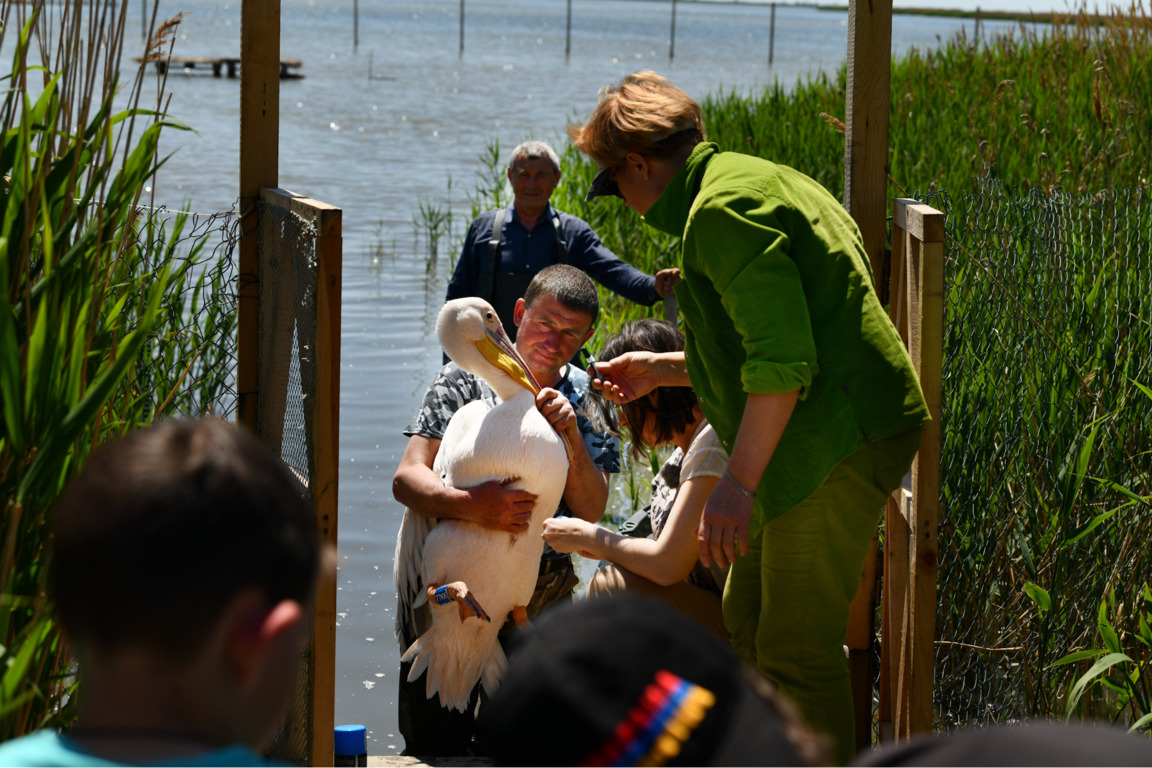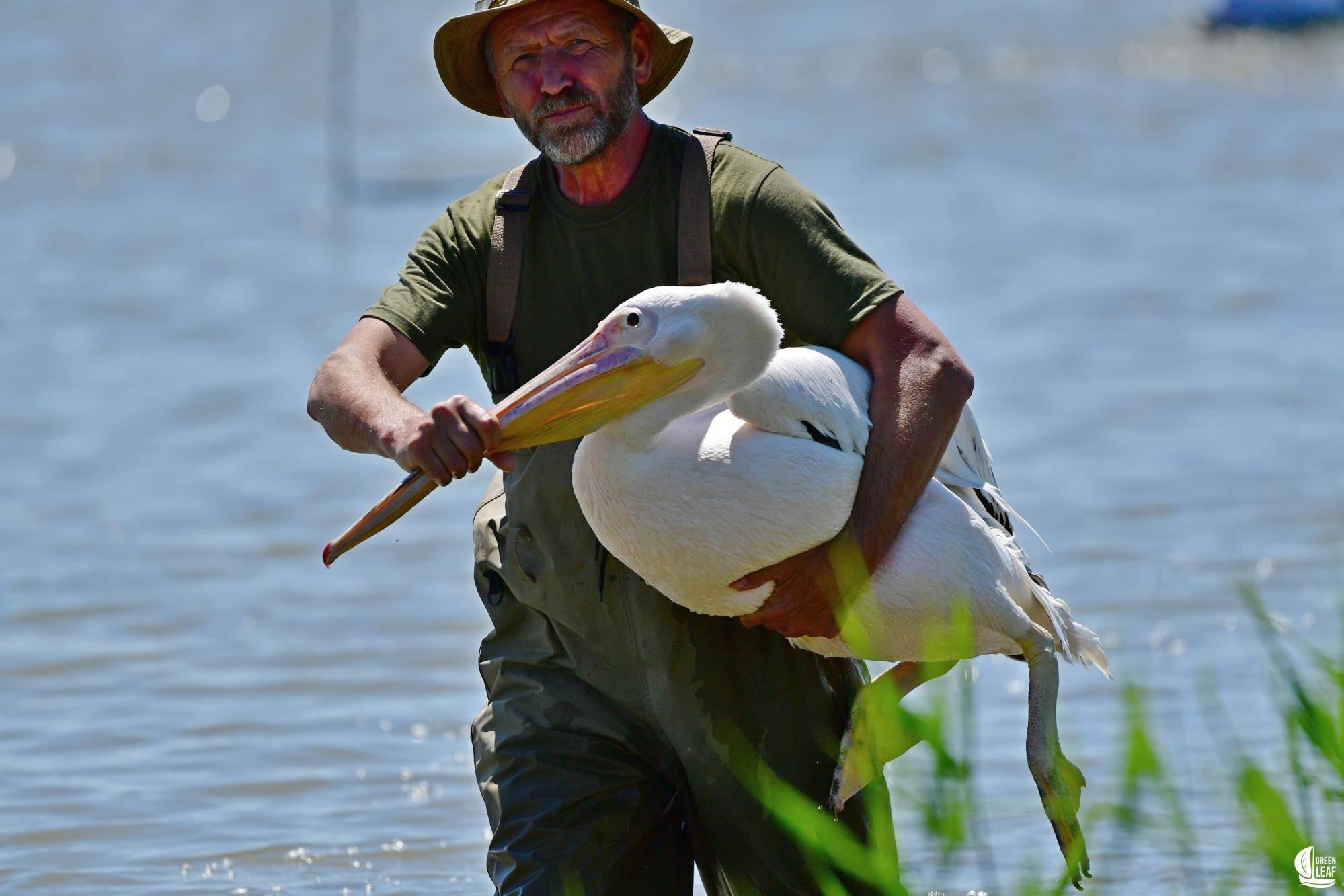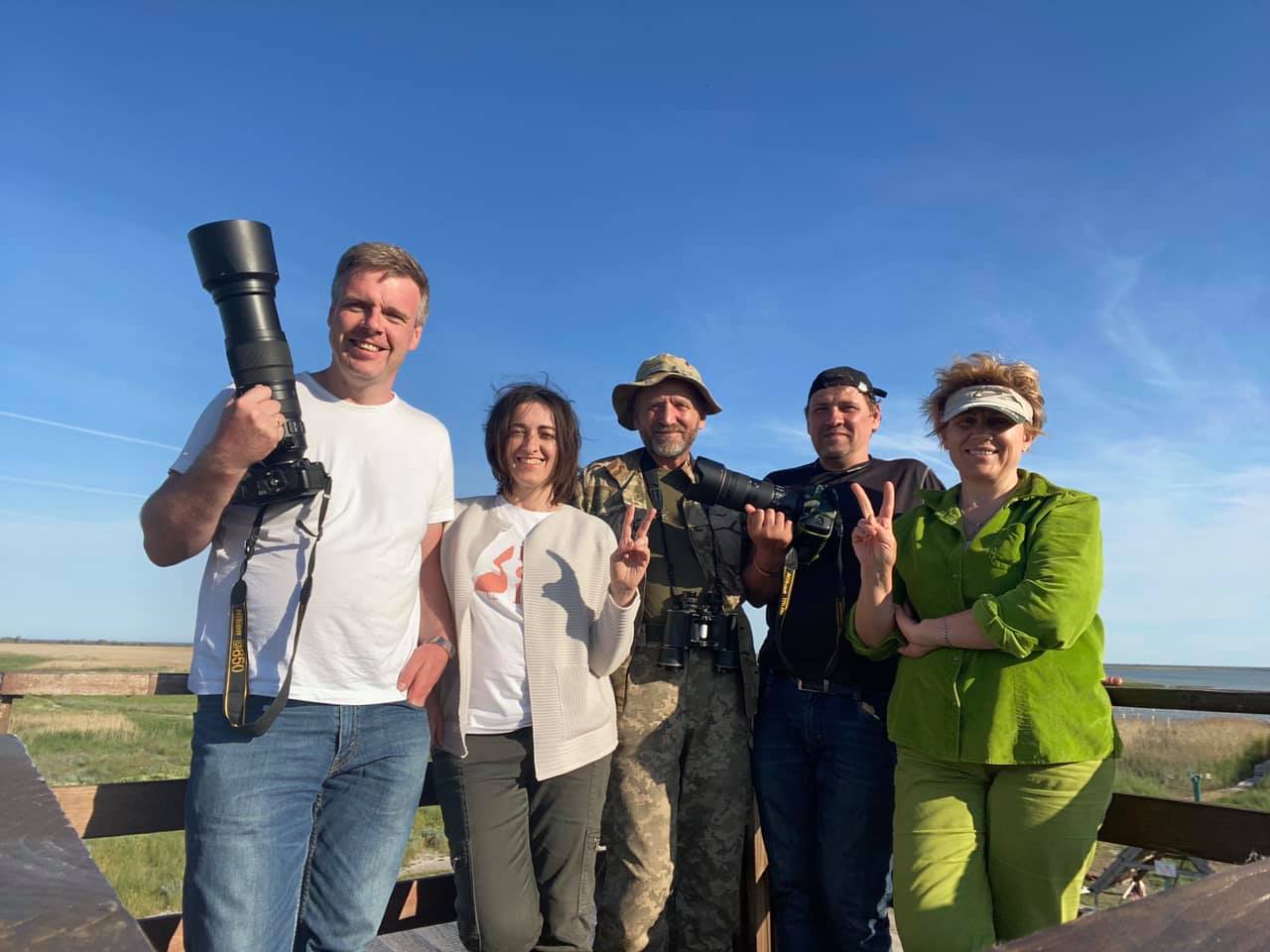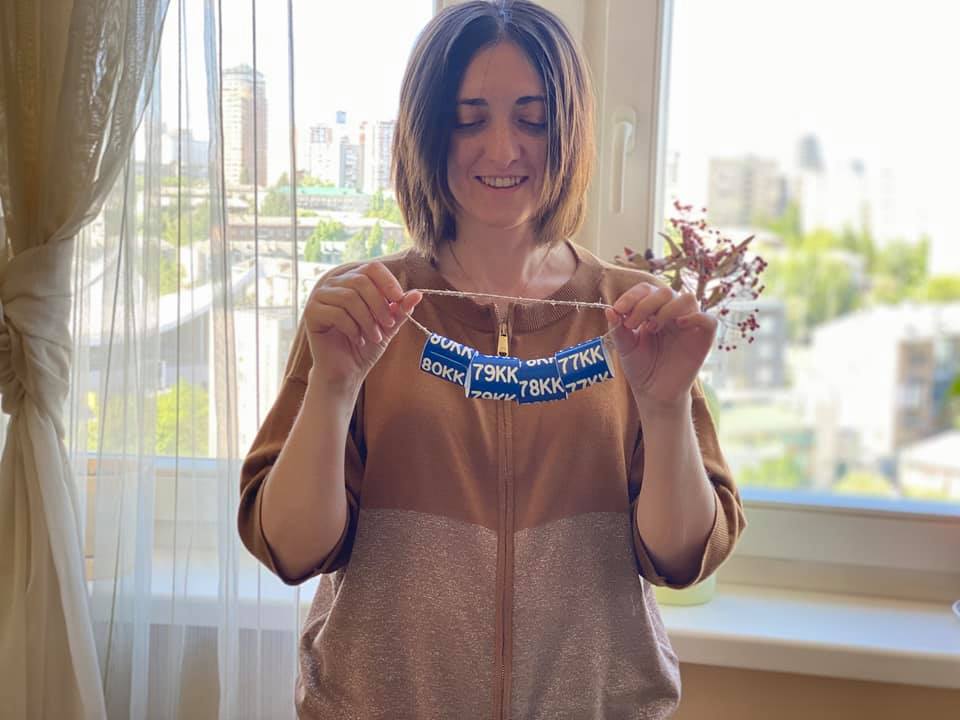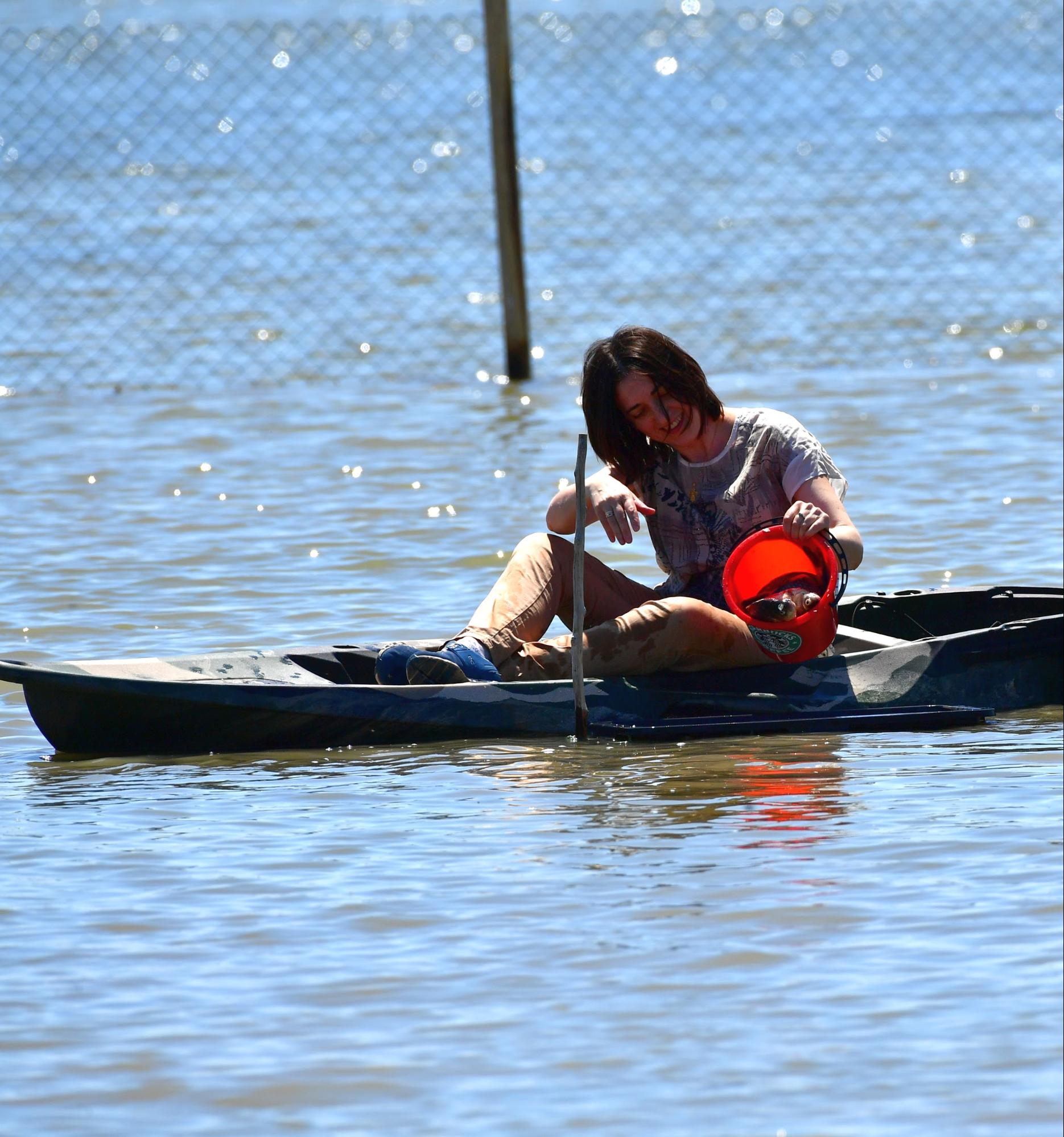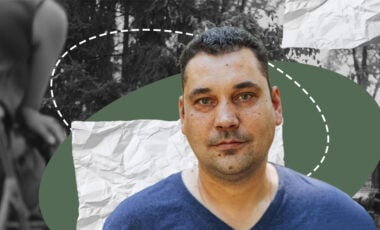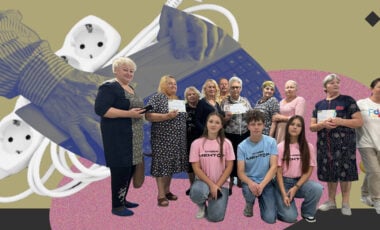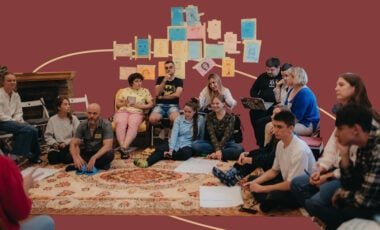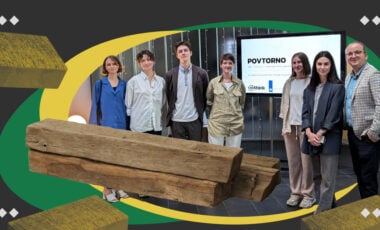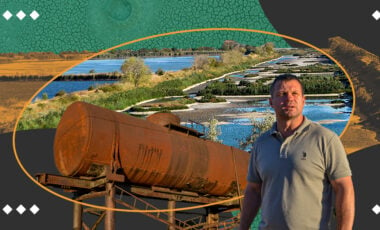Ukrainian ornithologists go into pelicans rehabilitation
The birds, rescued from poachers in September 2020 and placed for rehabilitation in the National Nature Park, have been recently ringed
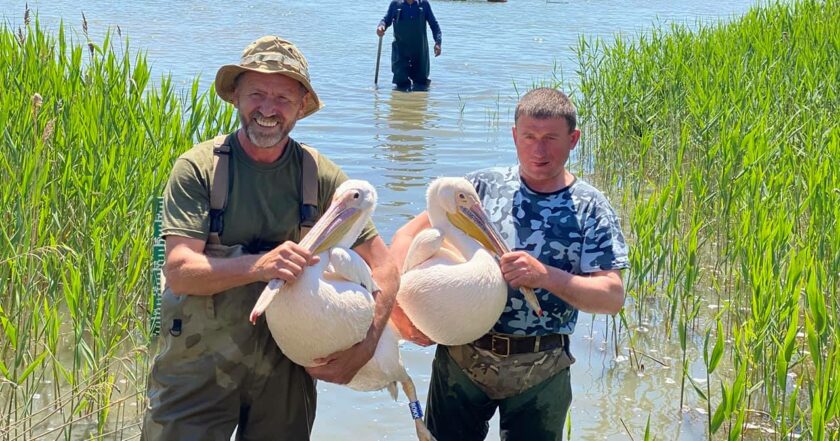
Photo: Yana Bobrova
Last year, Rubryka talked about the Red Book white pelicans, Alibei and Alkalia. Then the birds were illegally caught by poachers for one of the Black Sea coast restaurants; there they cut wild pelicans' flight feathers so that they couldn't fly away, so they became entertainment for guests.
Fortunately, the management of the Tuzly Lagoons National Nature Park learned about the situation. With the assistance of biologist and eco-activist Vladyslav Balinskyi, the birds were rescued and transported to the Park for rehabilitation. Alibei and Alkalia lived in equipped aviaries on the territory of the park's office in Tatarbunary, the Odesa region. The pelicans were monitored 24/7 with broadcast on the YouTube channel of the Peli can live Charity Foundation, which has been supporting the Tuzly Lagoons for several years. A swimming pool was even specially set up for birds.
Rubryka, proceeding to follow the pelicans' fate, learned that this year, thanks to charitable contributions to the Peli can live Foundation's account, the Park team managed to build an open aviary on the territory of the Tuzly Amazonia National Nature Park "Tuzly Lagoons" and transport the pelicans there at the end of April. In fact, they made a start for a waterfowl rehabilitation center. There, Alkalia and Alibei will adapt to the environment with free pelicans and learn how to fish. The birds are still not ready for independent life: the flight feathers, which give their wings lift, will grow back only after shedding, which means that the birds remain unprotected from predators on land.
Not so long ago, an incident occurred that made both the Park team and the Peli can live team nervous about the pelicans' fate. Either a powerful gust of wind or an irresistible yearning to break free helped pelican Alkalia fly over the aviary fence. The bird was lost, they couldn't find it for 5 days, and there was a substantial risk that it wouldn't survive in the wild and die of hunger because it hadn't learned how to procure its own food yet. Fortunately, local fishers came to the rescue: they told the Park's staff that Alkalia was begging for fish from them. The fugitive was returned to the aviary. They decided to ring the birds so that in the future, they could accurately identify them. The ringing issue was handled by Yana Bobrova, co-founder and executive director of the Peli can live Charity Foundation:
"As it turned out, there's no track record of ringing adult pelicans in Ukraine: these are gigantic birds, it's difficult to catch them, and we couldn't find rings of their size in our country. The easiest solution for us was to ask for help from the staff of the Lake Kerkini National Park in Greece. They've already advised us to create a nesting platform for Dalmatian pelicans in 2018-2019," Yana says. "Colleagues from Greece gladly volunteered to help. As a result, they sent 4 rings to us by mail, 2 for each pelican (according to the ringing technology with these models of rings in Greece). Now each bird has its own identification rings: Alkania's 77KK and 78KK and Alibei's 79KK and 80KK."
Ringing adult pelicans is a unique practice for Ukraine, just like the rehabilitation of Alkalia and Alibei.
"It's much easier to steal freedom from a bird and clip its wings than to restore its independent existence in the wild. What the Tuzly Lagoons team is doing is very important both from a scientific and practical point of view. And we see our task in helping them as much as possible," Yana Bobrova explains. "Since pelicans are one of the largest and most beautiful birds of the Ukrainian avifauna (wingspan reaches 3 meters), they are the object of the offense for the owners of private menageries, restaurants, and other establishments to use them as customer attraction. It's illegal since both species living in Ukraine (both white and Dalmatian pelicans) are listed in the Red Book of Ukraine. It's crucial to pay attention to the illegal keeping of pelicans. Please inform us about such cases. And we do believe that Alibei and Alkalia will be able to become independent free birds!"
But number rings are only part of the story. The great dream of Ivan Rusiev, the Head of the Park's scientific department, is to purchase satellite trackers for Alibei and Alkalia, and it's a costly affair: the cost of one with an annual subscription fee is about 40 thousand hryvnias. So bird watchers will be able to find out where Alkalia and Alibei travel for the winter, which route they'll fly. Even now, the disappeared Alkalia would be quite easy to find if she had a tracker. In addition, you need to buy a freezer for storing fish. Unfortunately, it's not always possible to provide pelicans with fresh fish, so a certain supply is needed to feed the birds, and for the refrigerator to work, they need additional batteries to accumulate electricity generated by solar panels.
Peli can live is raising funds to return Alibei and Alkalia to the wild. To support them with a charitable contribution, please follow the link. Your help allows them to work out the method of re-adapting pelicans to their natural habitat and create a full-fledged rehabilitation center for waterfowl in the Tuzly Lagoons Nature Park.


